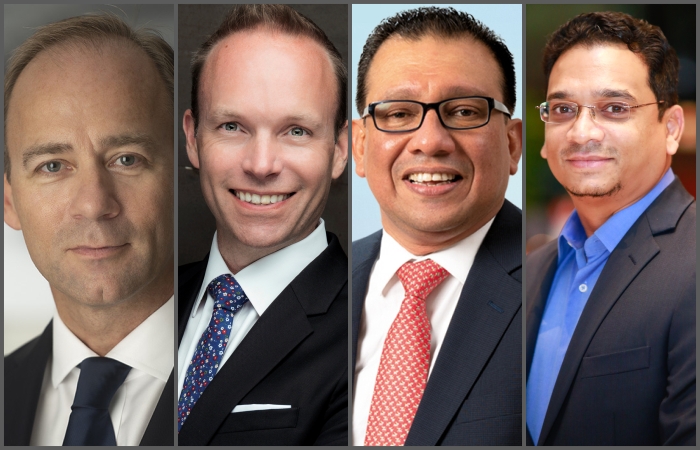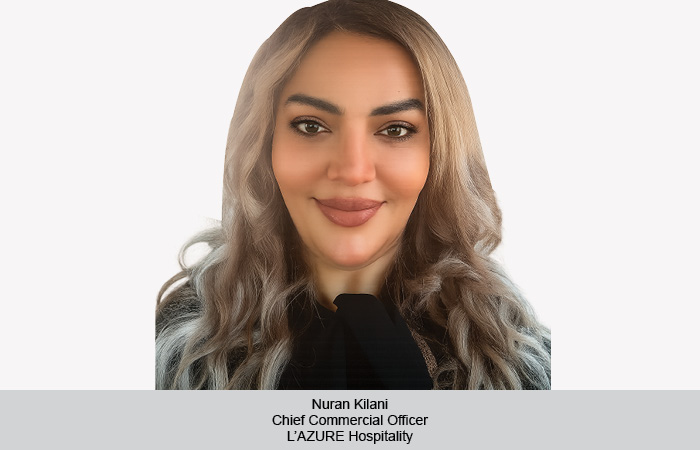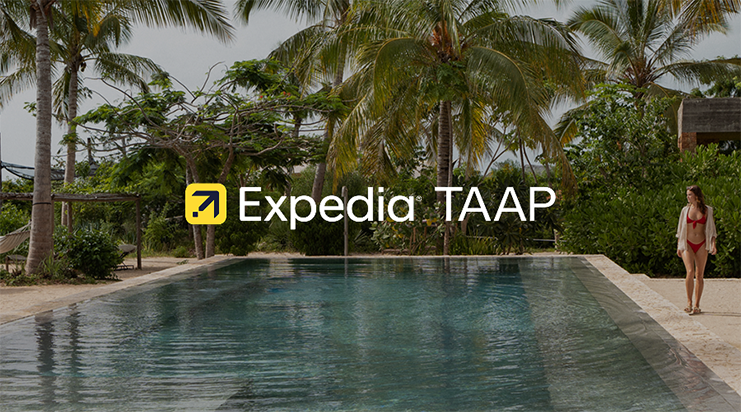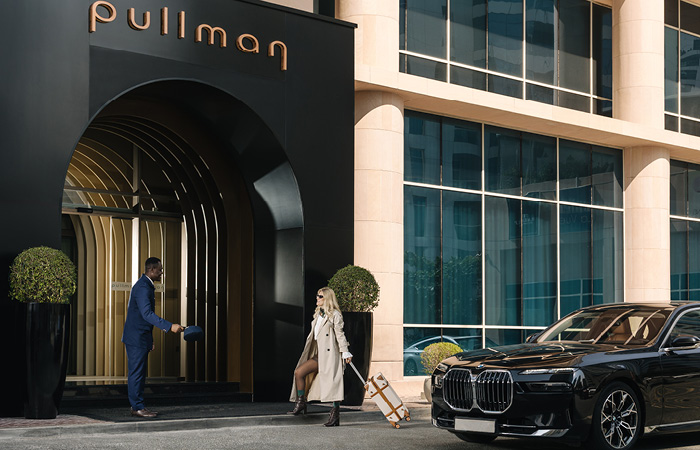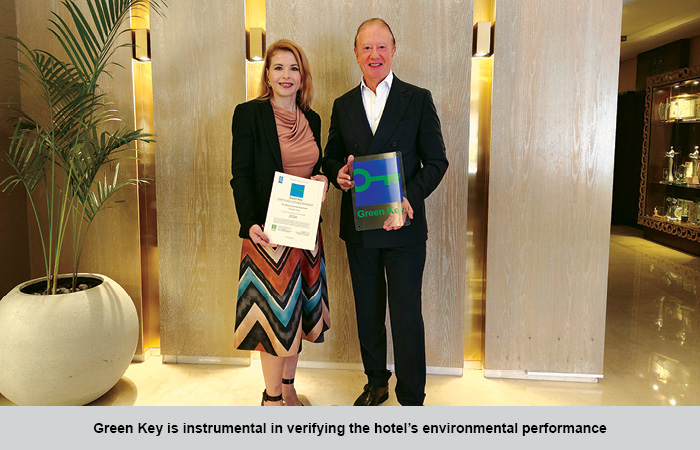The past few weeks have seen the hospitality industry come up with new plans and strategies like never before. Today as hotels open their doors to travellers, it will be in an era of the ‘new normal’. Stalwarts in the industry share their experiences on challenges and customer engagement during the lockdown and the current scenario amidst the pandemic with TRAVTALK.
Could you share some of the challenges faced due to lockdown?
Mark Willis, CEO, Accor Middle East and Africa
“Our teams have been, and continue to, review our existing business models in order to look for new ways of operating during these uncertain times and especially look at ways in which our business can operate after the effects of COVID-19 on the travel industry start to diminish. Some of these measures include an assessment of the projected spending for 2020 to ensure it is in line with business requirements, as well as a number of new commercial initiatives to attract the interest of travellers.”
Tim Cordon, Senior Area Vice President – Middle East and Africa, Radisson Group
“There are many factors we’ve had to consider from an operational perspective, including repurposing some of our hotels for essential service use, adopting new strategies and approaches to secure a strong reopening once tourism restarts – from expanding hygiene, sanitation and precautionary measures to social distancing implementation.”
Darell De Crusz, Vice President – Sales & Marketing for Aitken Spence Hotel Managements (Pvt) Ltd.
De Crusz heads the sales and marketing division across four destinations – Sri Lanka, Maldives, India and Oman for Adaaran properties. He shares, “This was an unprecedented black swan event which posed short to long-term effect on the global community. The challenge we saw was the heavy flow of cancellations and the drop in fresh new bookings. For Sri Lanka especially, we were beginning to see progress post-Easter Sunday, and the disruption of COVID-19 halted the optimism, replacing it with a lull. Maldives too was affected post-Easter Sunday in terms of twin centre travel, and the steady increase in arrivals we were seeing, came to an abrupt halt.”
Ravi Santiago, Cluster General Manager, Ramada Hotel & Suites by Wyndham Ajman, Ramada by Wyndham Beach Hotel Ajman and Wyndham Garden Ajman Corniche
“The hospitality industry has been hit hard by the pandemic as people are required to stay home in order to curb the spread of the virus. We felt the impact and witnessed a drastic decline in revenues in all areas including rooms, Food & Beverage, and banqueting.”
How did you engage with your customers during the lockdown period?
De Crusz shares, “At the onset of the COVID-19 spread, we developed a communication strategy which looked at each layer of relationship – travel and tour operators, partners and representatives, media, direct guests and our social media followers. In line with the strategy, we kept in touch with each stakeholder segment via constant communication. This included communicating our safety precautions at the onset as well as on post-COVID operations, liaising with international media on conveying our safety practices, our sustainable initiatives and lighter interactive pieces such as sharing recipes, wellness tips, and more. Even though our operations were scaled down, we kept in touch with our direct guests by keeping the dialogue open and answering their queries.”
Willis adds, “During this difficult period of quarantine and staying home, we have focused our communication line on our regional Instagram account (@ALL_MEA). The activation has been revolving around ALL (Accor Live Limitless), which focuses on three main pillars: Food, Sport and Entertainment. The campaign has been designed to bring ALL to life in people’s homes by creating tailored, themed content across our three key categories and delivering these across our social media platforms in a regular, programmed way.”
Cordon went on to say, “There is no doubt that this has been difficult for everyone to watch, with life as we know it completely altering in such a short period. Looking at the bigger picture, we have all been reminded of what is important and that we are all in this together, regardless of industry and geography. Crucial times like these also remind us of the importance of human connections and it has been key to adapt our communications approach as one unified industry.
Brands were forced to reassess their digital marketing strategies and communicate with their consumers in new ways, which kept them busy during forced isolation at home. As consumers are social distancing and working from home, they’re spending more time online. We have therefore been more creative with our online presence and have assumed the role as entertainers by sharing inspirational and useful content. Social media platforms, which are often cluttered with advertisements, are now giving way to online conversations, travel inspiration, cooking tutorials and fitness challenges, all focused on uplifting the communities’ spirits.”
Santiago shares, “We started sending out communication to all our guests and partners even before the lockdown was enforced. We duly informed them on the health and safety protocols that we put in place, alongside the up-to-date information from the relevant authorities.”
What initiatives did you take in order to ensure safety for your clients before opening?
Willis says that as a group that puts the safety of its guests and team members first, Accor has recently launched the ‘ALL Safe Programme’, which will see a number of brand new operational and service standards, developed with hygiene specialist Bureau Veritas, roll out to its properties in the region. The ground-breaking ‘ALL Safe Officer’ programme, will see every hotel appoint a health and safety officer who will not only ensure cleaning and hygiene protocols are implemented to the highest standards, but will be available to handle guests’ questions and concerns. These specially trained officers are the face of Accor’s new ALL Safe Accor Programme – a set of rigorous measures designed to protect and reassure guests that are being implemented at its 300 properties region-wide.
“Our hotels already adhere to strict guidelines and highest standards when it comes to safety and hygiene, and we have stepped up all the measures and added the recommended practices including temperature checks, installing thermal cameras, wearing of protective masks, disinfecting all touchpoints in the hotel, and placing sanitisers in all areas. New initiatives will soon be rolled out including keyless check-in and using of QR codes for the restaurant and café menu,” shares Santiago.
Cordon states that Radisson Group has recently launched the Radisson Hotels Safety Protocol, a new programme of in-depth cleanliness and disinfection procedures, in partnership with SGS, the world’s leading inspection, verification, testing and certification company. These enhanced protocols, operational guidance and comprehensive health and safety procedures validated by SGS, are adapted based on local requirements and recommendations, to ensure guests’ safety and peace of mind from check-in to check-out.
“Our primary objective was to ensure safety of guests as well as our associates. Due to our risk mitigation strategies in place, we were able to act promptly in heightening health and safety precautions across our hotels and resorts in Sri Lanka, Maldives, Oman and India. For the post-COVID operations, we have looked into each area of guest touchpoints and have devised a cohesive plan to ensure health and safety by enacting an elevated precautionary operational protocol at each level. We worked closely with both local and international health bodies in putting together our post-COVID operational plan and will continue to maintain our dialogues in enhancing our precautions going forward,” says De Crusz.
Are you focusing on staycations or domestic tourism?
Cordon points out that although airlines are starting to operate, flights are predominantly repatriating stranded citizens and residents, making international travel difficult. Therefore, post COVID-19 recovery is expected to be driven by a rebound in domestic tourism. “We can see that travellers still want to go on holiday, especially after being isolated for such a long time, but safety has become a top priority. As a result, there has definitely been a staycation trend and it is expected to strengthen in the coming months. At the same time, we believe that as countries begin to ease lockdown measures, all eyes are on how and when international borders will reopen. Whilst the behaviour or priorities might have changed, people will want to reunite with their families and friends and for that to happen, many will consider pursuing international travel. We can already see that countries are preparing to restart their travel economy, many nations are agreeing on the possibility of establishing ‘travel bubbles’ whereby groups of countries allow each other’s citizens to enter freely,” he adds.
Willis shares, “I believe that tourism demand will return in phases to our region, first phase being local travel, second phase regional travel and third stage being international travel. As we are currently in the first phase (until the borders reopen), our properties that are currently operational are focusing on staycations and offerings for residents. We have seen very positive signs and demand for stays in our resorts during the weekend in the UAE especially, such as the Eid weekend, as well as some mid-week stays in our city properties.”
Santiago goes on to say, “We are relying on staycations throughout the summer period to boost revenues. We recently launched a staycation package, which is available until end of September. We are also going to launch a daycation package alongside F&B offers that are targeted to UAE residents.” De Crusz states, “For Sri Lanka, we will focus on domestic market as Phase 1. We are also encouraging longer stays in one resort as part of our safety precautions. In the Maldives we are looking at buyouts.”
When do you feel the hospitality industry will bounce back?
Willis responds by saying, “The return to normalcy for our industry in our region is very dependent on borders reopening in order for people to be able to travel again, however that being said, we are already seeing positive signs throughout our hotels globally, with less than 10 per cent of existing bookings being cancelled for the months of July and August, which shows people are still willing to travel given the opportunity to do so. Following the opening of borders and the phased approach mentioned above, I believe the industry in our region will go back to previous levels within 18-24 months.”
Cordon shares, “The travel industry has rebounded from numerous past crises and we strongly believe we will all bounce back again, with a fresh and innovative perspective. Whilst the industry is currently under pressure, it is relieving to observe that domestic travel is starting to open and beginning to pick up in various parts of the world. Going forward, despite the cabin-fever that kicked-in as a result of social distancing, travellers around the globe will certainly be a lot more conscious and cautious, but it is our responsibility to reassure them and make our guests feel safe.”
Santiago adds, “Our industry has always been resilient and previous events have proven how hospitality, travel and tourism businesses managed to bounce back. Different UAE-based airlines have already announced flights to different cities. There will always be a demand because it’s in our nature to move around and explore. It will be a gradual recovery, but we are optimistic that by the fourth quarter, people will have more confidence to travel.”
“We are optimistic that domestic industry will pick up by July in Sri Lanka, followed by international arrivals in August when the airports and the borders open. Similarly, in the Maldives, we are hopeful that with the airport opening up along with the borders, we will see a gradual increase in arrivals over the next few months,” concludes De Crusz.
Inputs by Shehara Rizly
 TravTalk Middle East Online Magazine
TravTalk Middle East Online Magazine
